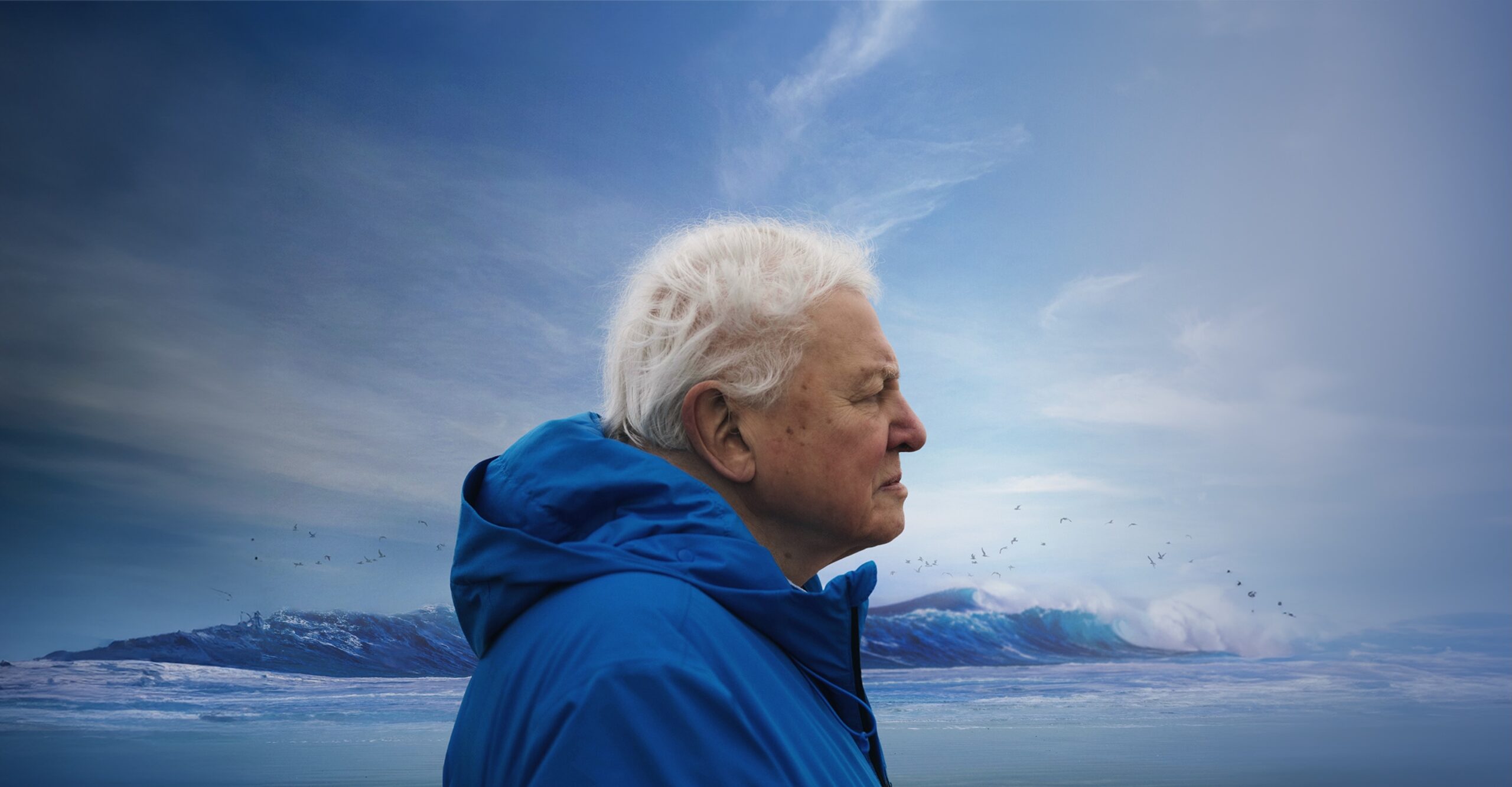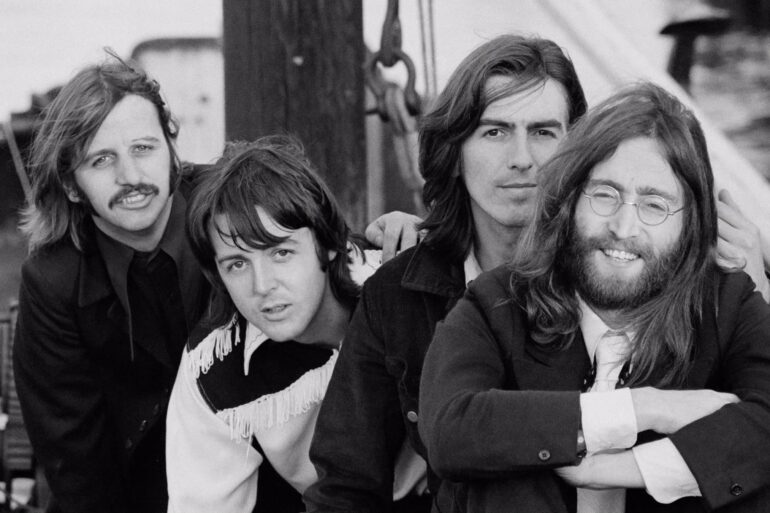Its key message: All is not lost in the battle to save Earth’s waters; but we have to act now.
We know that the Earth’s in trouble. There’s the omnipresent threat of climate change. Temperatures are soaring, sea levels are rising, wildfires are becoming all too common. Our planet is scorching.
While the impact of unprecedented warming, coupled with human activities that harm the planet, can be seen around us, what we don’t immediately see—meaning underwater—is just as bleak and near hopeless.
Related story: REVIEW: Not just cute—5 wildly good reasons to watch ‘Secrets of the Penguins’
Related story: REVIEW: K-drama thriller ‘Nine Puzzles’ brims with brains but falls short of thrills
Related story: “Ebb & Flow”: Art, jewelry, and skincare come together for marine conservation
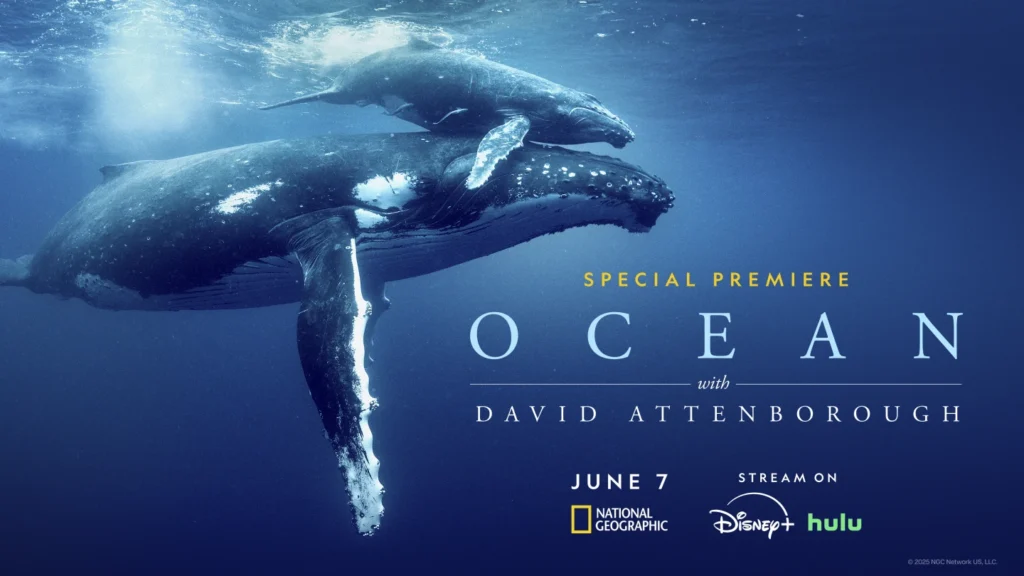
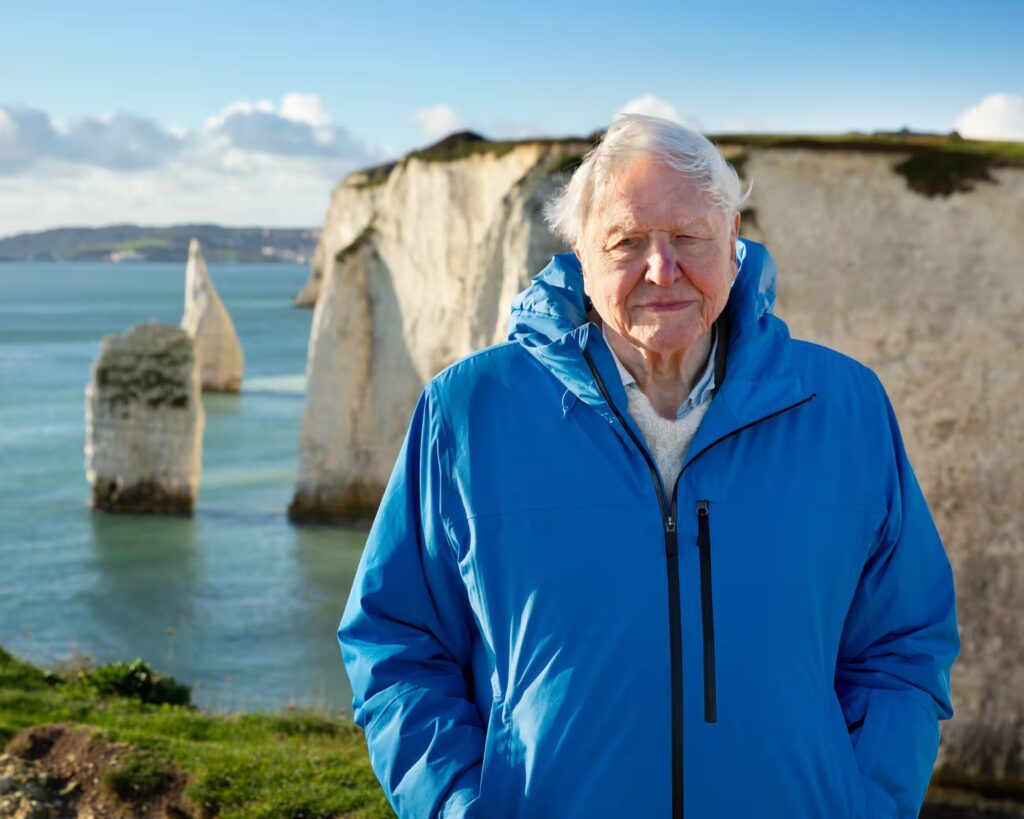
This is the message of National Geographic and Disney+’s newest documentary, featuring no less than the Sir David Attenborough himself. The film was released on the streaming platform on June 7, marking the halfway point of the United Nation’s Decade of the Ocean. It also marks one other extraordinary milestone, Attenborough’s 99th birthday last May 8, exactly a month before the docu’s release date.
A lifelong David Attenborough fan, I grew up watching BBC Earth documentaries, each of which never failed to leave me fascinated—and comforted by his distinct, grandfatherly voice. So when the near-centenarian’s latest work, Ocean with David Attenborough premiered, I knew I had to write about it for The POST. Here’s my review of this documentary I strongly believe all of us should watch.
Related story: REVIEW: ‘All We Imagine as Light’ is a gentle, radiant ode to female friendships
Related story: REVIEW: ‘Mission: Impossible-The Final Reckoning’ reminds us why we still love big, real action movies
A stunning look into underwater wonders
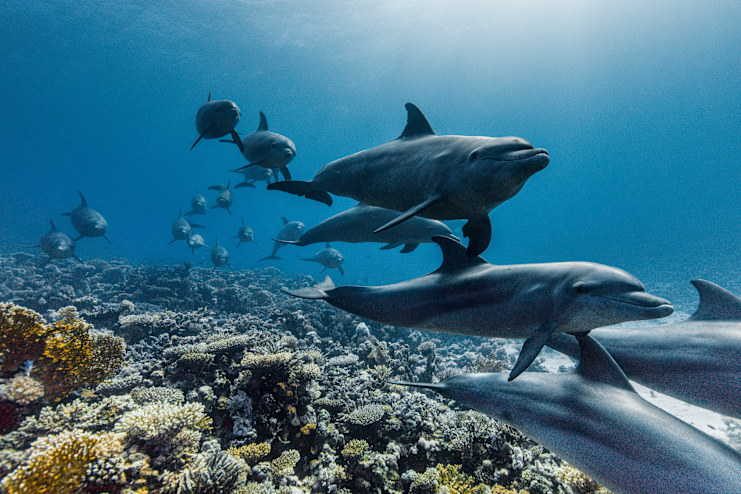
As expected from a David Attenborough documentary, Ocean has majestic visuals and cinematography. Shot from coastal areas across the world from Liberia in West Africa to Papahānaumokuākea in Hawaii, it was like a tour of the Earth’s oceans in all its beauty and destruction.
The first third of the hour-and-a-half film unfolded like your usual Attenborough feature. In language that’s near poetic, he marvels at the ocean, saying how it is both “feared and revered.” He invites us to “take the plunge, to go beneath the waves,” because to do so—to truly see the sea, one will “never look at Earth the same way again.”
True enough, Attenborough delights us with breathtaking underwater shots vis-a-vis some really neat trivia. For instance, I learned that we have towering marine features called seamounts—underwater mountains—that number as much as 40,000, each teeming with its own vibrant ecosystem. As if reading my mind, Attenborough quips that after all, the “open ocean is not a featureless desert.”
I also learned about the oceanic wonder that is the giant kelp. The tallest underwater living things, with some growing as tall as 175 meters (574 feet), Attenborough describes them as “jungles that could rival those on land, adding that the marine communities housed within these giant kelps, is “life as its most majestic.”
These ocean jungles and meadows, which are as ancient as the Earth, can absorb far more carbon than the same area of rainforest on land. Moreover, plankton can remove a third of the world’s carbon emissions. They also produce more oxygen than all the trees on the planet—an amount that is equivalent to half of the air we breathe.
A quick online search revealed that as a whole, per United Nations data, the ocean generates 50 percent of the oxygen we need, absorbs 30 percent of all carbon dioxide emissions, and captures 90 percent of the excess heat generated by these emissions. Described by both the UN and Attenborough as the world’s greatest ally against climate change, the ocean is not just the “lungs of the planet” but also its largest ‘carbon sink’—a crucial buffer against the impacts of a warming Earth.
Related story: REVIEW: Equal parts witty and earnest, ‘A Real Pain’ is a real treat
Related story: REVIEW: Latvian film ‘Flow’ is a breath of fresh air in the world of animation
But also distressing call to urgent action


Water is, indeed, life. But many of us seem to be completely ignorant of this basic fact—or worse, there are those that choose to ignore it because they see the ocean as a vast monetary resource. Don’t get me wrong, I echo what was said by Attenborough and the individuals featured in the film: fishing is not bad. Fishermen should be allowed to fish as a livelihood. But overfishing, especially the massive and industrial kind, imperils the ocean—what Attenborough calls “the most important place on Earth.”
And as the film nears its halfway point, we are shown some of the most distressing videos from what is perhaps the most destructive underwater human activity: bottom trawling. Footage of indiscriminate dredging by trawlers moved me to tears. This fishing method involves dragging a massive net across the seafloor to catch fish and other marine life, decimating entire ecosystems—coral reefs and seagrass beds—along the way. Trawlers are also a wasteful lot, throwing away most of their catch which are usually made up of a large amount of non-target species, including endangered animals like dolphins, sea turtles, and sharks, which are often hauled back to the ocean dead or dying.
No one who lives today knows the abundance of a truly wild ocean.
Bottom trawling also changes the entire chemistry of the water, including nutrient levels, per a study by the U.S. Geological Survey. The effects of bottom trawling, however, extends beyond the ocean, as it releases carbon that’s “too big to ignore,” contributing to global warming, says a study by Global Fishing Watch.
Attenborough laments that every year, an area almost the size of the entire Amazon rainforest is trawled—over and over again. The pillaging is so massive, that in some parts, the trail of destruction can be seen from outer space. Again, the visuals are harrowing. The difference between the vibrant marine life in the first 30 minutes of the film with the gray, lifeless seabed in the next segment is both stark and heartbreaking. I can’t help but ask myself: How can man be so selfish and downright evil?
To make things worse, Attenborough says that about US$20 billion are spent on fishing on an industrial scale, including bottom trawling, with most of this subsidized by governments. Ships—numbering as many as 400,000— sent by a “few wealthy nations,” he continues, are “starving coastal communities of the food source they have relied on for millennia.” With government backing, these atrocious activities are legalized—proving, once and for all, that not all that is legal is right, moral, or ethical.
No place on Earth is safe from this practice, as even the farthest reaches of our ocean is not spared from industrial fishing. The image of a peaceful colony of penguins juxtaposed against massive, ominous-looking fishing vessels sent a chill down my spine. Attenborough aptly describes this abomination, this plunder of our oceans as “modern colonialism at sea.”
In a voice cracking from grief, he says: “No one who lives today knows the abundance of a truly wild ocean.” The accompanying accounts of the scallop diver from the United Kingdom and the fisherman from Liberia made this harsh truth even more heart wrenching and all too real. “Without the ocean, there is no community,” the Liberian man said in a sad voice. We are all intertwined. The Earth is not man’s alone; it’s for every single living being which inhabits it, big or small. When will we realize that? I hope we do, before it’s too late, as Attenborough says “now, we are almost out of time.”
Related story: REVIEW ‘Black Mirror’ Season 7: Tinker, voyeur, soldier, cry
Related story: REVIEW: ‘White Lotus’ Season 3—no neat endings in paradise
A glimmer of hope
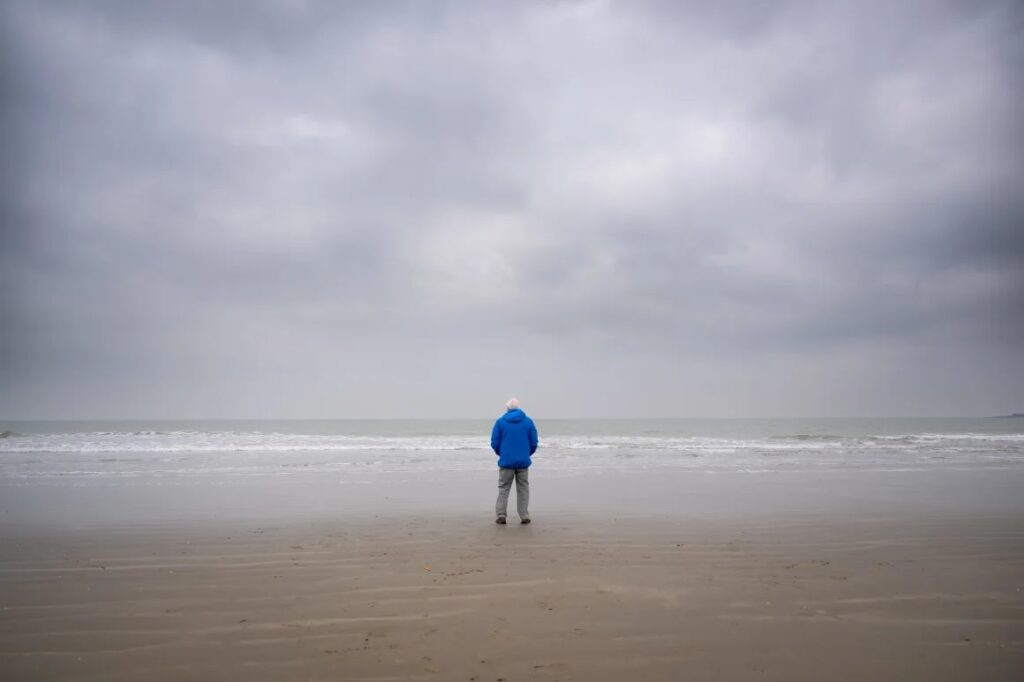
In the final 34 minutes of Ocean, Attenborough admits that because the ocean is in such poor health, he would find it hard not to give in to hopelessness. That is if not for what he calls a “most remarkable discovery”: the ocean can recover “faster than we had ever thought possible.”
For this to be possible, we have to let nature run its course, and the sea will save itself. “For if left alone, it may not just recover, but thrive beyond anything anyone alive has ever seen,” he continues, voice shifting to a more upbeat and hopeful tone.
Attenborough assures us it is already happening, giving the revival of the underwater ecosystems of the United States’ Channel Islands, and the thriving populations of Hawaii’s albatross populations as examples. He also shared how he was witness to the resurgence of blue whales, the largest animal known ever to have existed, a species driven to near-extinction when whaling was industrialized.
Toward the final 15 minutes of the film, Attenborough mentions how nearly all coral reefs are predicted to disappear in the next 30 years. Grim? Yes. But it’s at this point in the documentary when there’s a marked shift to more uplifting music as he says: “You could be forgiven for thinking there is no hope left at all. But there is.” A montage of reefs that have come back to life, from Palau to Kiribati, follows.
For if we save the sea, we save our world.
Only less than 3% of the world’s oceans are protected, practically none, he quips. We can pin our hopes, however, on the fact that nearly every country has agreed to protect at least a third of our oceans by 2030. Just a few days ago, almost 200 countries came together in Nice, France, for the UN Ocean Conference. The aim was to get the High Seas Treaty, an agreement signed two years ago, ratified by 60 countries to bring it into force. Fifty countries had ratified by Friday, June 13, with dozens more promising to ratify by the end of the year.
There is, indeed, hope. And hope lies in what Attenborough calls the “power of protection.” And we can trust that what this man—who has lived close to a hundred years on Earth, years spent mostly observing nature—says is gospel truth.
Attenborough closes the film with a personal sharing. Seated by a shore on a cloudy day wearing a bright blue jacket, he shares how when he first saw the sea as a young boy, it was thought of a vast wilderness to be tamed and mastered for the benefit of humanity. “Now, as I approach the end of my life,” he enthuses, “we know the opposite is true.”
“It is my great hope that we all come to see the ocean not as a dark and distant place with little relevance to our lives on land but as the lifeblood of our home,” he continues. “I’m sure that nothing is more important.”
As the camera zooms in on Attenborough one final time, with him standing at the edge of a cliff, gaze fixed on the horizon of a vast, tranquil sea, he ends the film with its most memorable line: “For if we save the sea, we save our world.”
Ocean with David Attenborough is equal parts haunting and hopeful—as moving as an elegy and as uplifting as the sound of the ocean.
Rating: 5/5 stars
Related story: REVIEW: ‘Colin from Accounts’ is not your usual boy-meet-girl rom-com, that’s why you should watch it
Related story: REVIEW: ‘The Four Seasons’ is a beautiful blip

